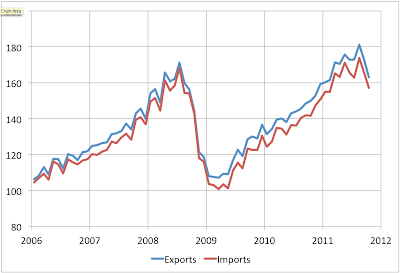Re: IEA economist: ‘We have to leave oil before it leaves us
August, 2009:
"One day we will run out of oil, it is not today or tomorrow, but one day we will run out of oil and we have to leave oil before oil leaves us, and we have to prepare ourselves for that day," Dr Birol said. "The earlier we start, the better, because all of our economic and social system is based on oil, so to change from that will take a lot of time and a lot of money and we should take this issue very seriously," he said.
...
The IEA estimates that the decline in oil production in existing fields is now running at 6.7 per cent a year compared to the 3.7 per cent decline it had estimated in 2007, which it now acknowledges to be wrong.
"If we see a tightness of the markets, people in the street will see it in terms of higher prices, much higher than we see now. It will have an impact on the economy, definitely, especially if we see this tightness in the markets in the next few years," Dr Birol said.
"It will be especially important because the global economy will still be very fragile, very vulnerable. Many people think there will be a recovery in a few years' time but it will be a slow recovery and a fragile recovery and we will have the risk that the recovery will be strangled with higher oil prices," he told The Independent.




